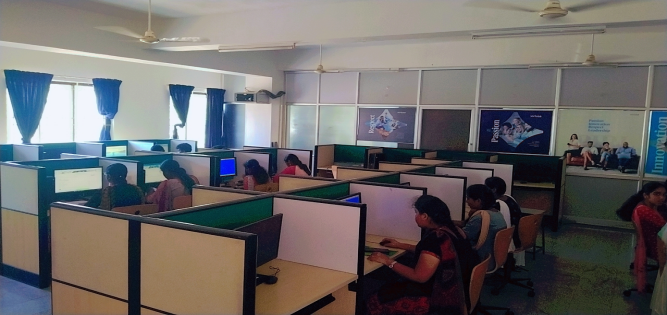Programme Educational Objectives (PEOs) – Regulations 2019
B.E. Computer Science and Engineering (Cyber Security) graduates will:
PEO1. Technical Skills: The graduate will have strong technical and foundation in the field of computer science specialized in cyber security
PEO2. Security Experts: The graduates have the ability to address and provide feasible and viable solutions to security needs of modern computing industry
PEO3. Social awareness and ethics: The graduates will possess good ethical attitude, strong communication skills and greater awareness in social moral responsibilities.
Programme Outcomes (POs) – Regulations 2019
On successful completion of B.E. Computer Science and Engineering (Cyber Security)
programme, graduating-students/graduates will be able to:
PO1. Engineering Knowledge: Apply the knowledge of mathematics, science, engineering fundamentals, and an engineering specialization to the solution of complex engineering problems
PO2. Problem Analysis: Identify, formulate, review research literature, and analyse complex engineering problems reaching substantiated conclusions using first principles of mathematics, natural sciences, and engineering sciences.
PO3. Design/Development of Solutions: Design solutions for complex engineering problems and design system components or processes that meet the specified needs with appropriate consideration for the public health and safety, and the cultural, societal, and environmental considerations.
PO4. Conduct Investigations of Complex Problems: Use research-based knowledge and research methods including design of experiments, analysis and interpretation of data, and synthesis of the information to provide valid conclusions for complex problems.
PO5. Modern Tool Usage: Create, select, and apply appropriate techniques, resources, and modern engineering and IT tools including prediction and modelling to complex engineering activities with an understanding of the limitations.
PO6. The Engineer and Society: Apply reasoning informed by the contextual knowledge to assess societal, health, safety, legal and cultural issues and the consequent responsibilities relevant to the professional engineering practice.
PO7. Environment and Sustainability: Understand the impact of the professional engineering solutions in societal and environmental contexts, and demonstrate the knowledge of, and need for sustainable development.
PO8. Ethics: Apply ethical principles, commit to professional ethics, responsibilities, and norms of the engineering practice.
PO9. Individual and Team Work: Function effectively as an individual, and as a member or leader in diverse teams, and in multi-disciplinary settings
PO10. Communication: Communicate effectively on complex engineering activities with the engineering community and with society at large, such as, being able to comprehend and write effective reports & design documentation, make effective presentations, and give and receive clear instructions.
PO11. Project Management and Finance: Demonstrate knowledge and understanding of the engineering and management principles, and apply these to one’s own work, as a member and leader in a team, to manage projects in multi-disciplinary environments
PO12. Life-long learning: Recognize the need for, and have the preparation and ability to engage in independent and life-long learning in the broadest context of technological change.
Programme Specific Outcomes (PSOs) – Regulations 2019
On successful completion of B.E. Computer Science and Engineering (Cyber Security)
Programme, graduating-students/graduates will be able to:
PSO1. Security engineering: Ability to design and develop viable solution and systems to cater real world cyber security problems and issues in the field of computer based industries.
PSO2. Knowledge engineering: Ability to develop new products and services and perform research in the field of cyber security





